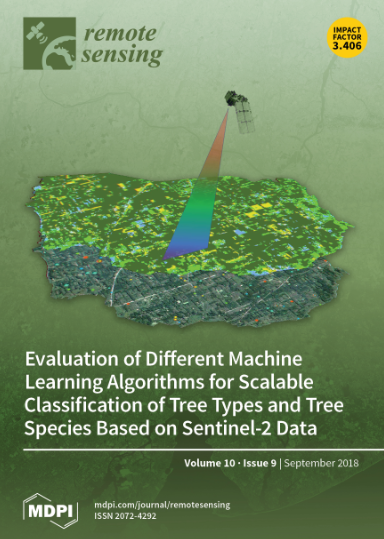A Distributed Deadlock-Free Task Offloading Algorithm for Integrated Communication–Sensing–Computing Satellites with Data-Dependent Constraints
IF 4.2
2区 地球科学
Q2 ENVIRONMENTAL SCIENCES
引用次数: 0
Abstract
Integrated communication–sensing–computing (ICSC) satellites, which integrate edge computing servers on Earth observation satellites to process collected data directly in orbit, are attracting growing attention. Nevertheless, some monitoring tasks involve sequential sub-tasks like target observation and movement prediction, leading to data dependencies. Moreover, the limited energy supply on satellites requires the sequential execution of sub-tasks. Therefore, inappropriate assignments can cause circular waiting among satellites, resulting in deadlocks. This paper formulates task offloading in ICSC satellites with data-dependent constraints as a mixed-integer linear programming (MILP) problem, aiming to minimize service latency and energy consumption simultaneously. Given the non-centrality of ICSC satellites, we propose a distributed deadlock-free task offloading (DDFTO) algorithm. DDFTO operates in parallel on each satellite, alternating between sub-task inclusion and consensus and sub-task removal until a common offloading assignment is reached. To avoid deadlocks arising from sub-task inclusion, we introduce the deadlock-free insertion mechanism (DFIM), which strategically restricts the insertion positions of sub-tasks based on interval relationships, ensuring deadlock-free assignments. Extensive experiments demonstrate the effectiveness of DFIM in avoiding deadlocks and show that the DDFTO algorithm outperforms benchmark algorithms in achieving deadlock-free offloading assignments.具有数据依赖性约束条件的通信-传感-计算一体化卫星的分布式无死锁任务卸载算法
综合通信-传感-计算(ICSC)卫星集成了地球观测卫星上的边缘计算服务器,可在轨道上直接处理收集到的数据,这种卫星正受到越来越多的关注。然而,一些监测任务涉及目标观测和运动预测等顺序子任务,从而导致数据依赖性。此外,卫星的能源供应有限,需要按顺序执行子任务。因此,不恰当的任务分配会导致卫星之间的循环等待,从而造成死锁。本文将具有数据相关约束条件的 ICSC 卫星任务卸载问题表述为混合整数线性规划(MILP)问题,旨在同时最小化服务延迟和能耗。鉴于 ICSC 卫星的非中心性,我们提出了一种分布式无死锁任务卸载(DDFTO)算法。DDFTO 在每颗卫星上并行运行,交替进行子任务加入、共识和子任务移除,直到达成共同的卸载分配。为了避免因子任务包含而产生死锁,我们引入了无死锁插入机制(DFIM),它根据间隔关系战略性地限制子任务的插入位置,确保无死锁分配。大量实验证明了 DFIM 在避免死锁方面的有效性,并表明 DDFTO 算法在实现无死锁卸载分配方面优于基准算法。
本文章由计算机程序翻译,如有差异,请以英文原文为准。
求助全文
约1分钟内获得全文
求助全文
来源期刊

Remote Sensing
REMOTE SENSING-
CiteScore
8.30
自引率
24.00%
发文量
5435
审稿时长
20.66 days
期刊介绍:
Remote Sensing (ISSN 2072-4292) publishes regular research papers, reviews, letters and communications covering all aspects of the remote sensing process, from instrument design and signal processing to the retrieval of geophysical parameters and their application in geosciences. Our aim is to encourage scientists to publish experimental, theoretical and computational results in as much detail as possible so that results can be easily reproduced. There is no restriction on the length of the papers. The full experimental details must be provided so that the results can be reproduced.
 求助内容:
求助内容: 应助结果提醒方式:
应助结果提醒方式:


